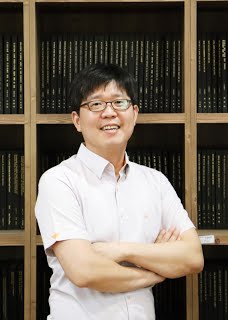Due to the strong fusion of our lives with IoT technologies (Internet of Things), we are on the verge of entering a hyper-connected society. Here, the identity of the individual, which ensures who or what I am or what it is, has become an important issue. However, the entry into the information society brings with it many problems relating to data and information security. To improve the level of security in identification, new concepts of cryptography are of great interest in a variety of areas.
In recent years, the development of so-called metasurfaces, consisting of a thin layer of nanostructures on a surface, has transformed light in an impressive and complex way as it spreads. This makes it easy for example to realize structural colors, holograms, polarization coding, etc. Metasurfaces have remarkable potential for use as optical security elements due to their extremely high resolution (100,000 dpi), their diverse data storage capabilities, and their extremely long service life.
In a joint project between the group of Professor Thomas Zentgraf at the Paderborn University and Professor Junsuk Rho at the Pohang University of Science and Technology in Korea, both groups plan to develop so-called multifunctional metasurfaces that function not only as structural color prints under white light but also as fully holograms under coherent lighting. Such a combination could potentially enable a new optical security technology.
The project aims for long-term research cooperation between the two universities in Germany and Korea and is funded financially by the German Academic Exchange Service (DAAD) for two years. Close cooperation in this field of research will strengthen existing contacts between the two groups. Through extensive experience in the design of novel holographic metasurfaces on the one hand and the production of large-scale nanostructures for optical metasurfaces, on the other hand, the experiences of both groups can be used. As part of the cooperation, an exchange program of doctoral students and postdocs from both groups will also take place. They carry out part of their research in the other institution and thus have the opportunity to gain international experience and further develop their knowledge in the field.
The aim of the cooperation is also to achieve a long-term cooperation agreement in the field of materials science between the two institutions, which should lead to a future exchange of students and doctoral students for research and academic studies. The University of Paderborn is already well-positioned for this with its two international master's programs (materials science, optoelectronics & photonics).

